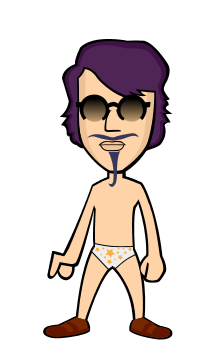Brushing your teeth is not just for a whiter smile and fresher breath, it's important for your overall health.When you brush, you remove plaque—a thin film of bacteria that sticks to your teeth and will cause cavities, gum disease, and if you ignore it long enough, will cause your teeth to fall out! Bad breath due to a smelly mouth may keep people away from you especially your elder siblings.. You know why to brush, but if you would like to learn how to brush your teeth effectively, this article is for you. Read on!
Use a good toothbrush. Choose a toothbrush with soft nylon bristles. This must effectively remove plaque and debris from your teeth, without irritating the gums or eroding tooth enamel like hard bristled brushes can do when used with sideways action. The toothbrush should also fit comfortably in your hand, and have a head small enough to easily reach all of your teeth, especially the ones at the back. If you have difficulty fitting the toothbrush into your mouth, it is probably too big.
- Electric toothbrushes are a great choice if you are a lazy brusher and think that the electric toothbrush might encourage you to spend more time on your teeth. However, you can do just as good of a job with a manual toothbrush -- it's all in the technique.
- You should definitely avoid toothbrushes with "natural" bristles made from animal hair as these can harbor bacteria.
- Replace your toothbrush regularly. The bristles will wear out over time, losing their flexibility and effectiveness. You should get a new one every 3 to 4 months, or as soon as the bristles start to splay out and lose their shape. Visual inspection of the toothbrush is more important than the actual timeline. You can also buy toothbrushes nowadays whose handles will change color when its time to get a new one.
- Research has found that thousands of microbes call toothbrush bristles and handles "home," and can cause infections.
- Always rinse your brush after using it, and store it upright and uncovered so that it can dry before your next use. Otherwise bacteria will grow.
- Use a fluoride toothpaste. It not only helps remove plaque, it also helps strengthen tooth enamel.However, it's important to note that fluoride toothpaste is not to be swallowed, as ingesting too much can have serious health consequences.it should not be used for children under the age of 3.You can get toothpastes to target a wide variety of dental and gum problems, including cavities, tartar, sensitive teeth and gums, gingivitis and stained teeth. Opt for the one that suits your best or ask your dentist or hygienist for advice



